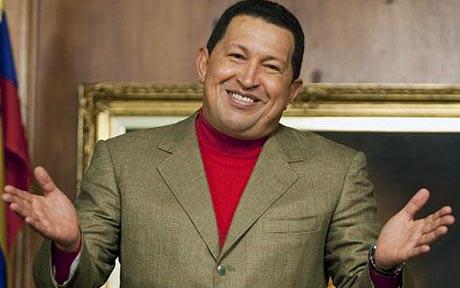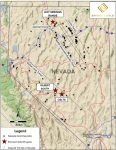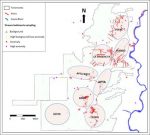
Political risk, a term Gold Reserve (TSX:GRX) shareholders know well. Investors in Gold Reserve knew what they were getting into in Venezuela, or they should have. Gold Reserve’s Brisas deposit is directly adjacent to Crystallex’s Las Cristinas deposit, which, after both companies suffered through years of stonewalling, had their mining operations extirpated by the Venezuelan government.
Gold Reserve, which once traded at over $10 per share saw its stock plummet to the $0.50 range. Investors determined that doing business with Venezuela’s socialist leader Hugo Chavez, who last year called foreign miners “crazy people”, was no business they wanted to be in. Gold Reserve’s story may be less well know than the Crystallex saga, but the company is no neophyte in Venezuela. Gold Reserve began developing the site in 1992 and invested close to $300 million in the gold and copper project, which is located in the historic Km 88 mining district of the State of Bolivar in the southeastern part of the country.
Gold Reserve, at this point, may be a play better suited to those with legal backgrounds as opposed to geology, but the reward for either could be staggering. When the Bolivarian Republic of Venezuela arbitrarily and, almost predictably, revoked their previous authorization to proceed with construction of the Brisas Project, Gold Reserve took action. The company recently filed an updated written claim against Venezuela, valuing its damages at $2.1 billion, equivalent to over $30 a share. The Company’s market cap, as of August 3, 2011, is $144 million with stock exchanging hands today on the TSX at $2.40 per share.
The Brisas deposit, which is one of the largest undeveloped gold/copper deposits in the world, contains proven and probable ore reserves of 10.2 million ounces of gold and 1.4 billion pounds of copper.
Doug Belanger, the company’s president, stated: “The filing of our reply is the culmination of an extensive effort by counsel, technical, legal and financial experts, and company personnel. With only six months to the final hearing we are very pleased with the progress and the pace of the arbitration. However, we always remain ready to evaluate and possibly enter an amicable settlement that would compensate Gold Reserve for its losses in addition to possibly retaining an interest in the project in exchange for the transfer of the extensive technical information that will allow the project to proceed on a fast-track basis rather than to take years to duplicate. Any settlement would only be accepted if it were beneficial to the shareholders and stakeholders of the company. Our objective is to pursue both the arbitration and settlement until the process is concluded.”
So is Gold Reserve fighting a losing battle? Maybe not. There is increasing economic pressure on Venezuala spearheaded from multinationals like Exxon to cooperate on a worldwide scale. The Venezuelan government is currently battling about 20 post-nationalization arbitration cases and has previously settled a number of ICSID claims against them with oil companies from various countries including France and Norway.
Venezuela is scheduled to file its Rejoinder by November 14, 2011. At that point the written phase of the arbitration will be complete and the final hearing, scheduled over a 10 day period, is set to commence on February 6, 2012 in Washington, D.C.



 Follow us on Twitter
Follow us on Twitter Become our facebook fan
Become our facebook fan












Comments are closed.